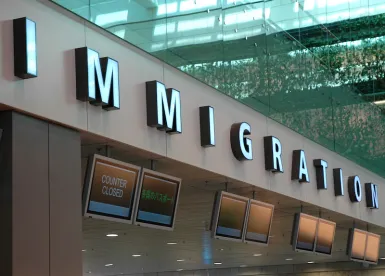Today, Secretary of Homeland Security, Kirstjen Nielsen, announced an additional 15,000 H-2B temporary nonagricultural visas will be available for Fiscal Year 2018. DHS had been under political pressure to release additional H-2B visas by businesses and industry groups citing labor workforce needs. Groups had been calling for the immediate release of additional H-2Bs to help meet workforce needs in the tourism industry, among others.
While Congress granted the authority to DHS to lead a federal process determining H-2B visa availability, the Secretary continues to urge Congress to address the H-2B program and reform current law to establish such visa availabilities in the future.
The DHS release on the announcement can be found here and is as follows-
DHS Announces Additional Visas for Foreign Workers to Assist American Businesses at Risk of Failing
WASHINGTON — Today, Secretary of Homeland Security Kirstjen M. Nielsen announced that an additional 15,000 H-2B temporary nonagricultural worker visas will be available for Fiscal Year 2018. In this determination, Secretary Nielsen determined there are not sufficient, qualified, U.S. workers available to perform temporary non-agriculture labor to satisfy the needs of American businesses in FY18. This allocation is in addition to the 66,000 visas already issued this year. Secretary Nielsen made this decision after consulting with Secretary of Labor Alexander Acosta, members of Congress, and business owners.
“The limitations on H-2B visas were originally meant to protect American workers, but when we enter a situation where the program unintentionally harms American businesses it needs to be reformed,” said Secretary Nielsen.“I call on Congress to pass much needed reforms of the program and to expressly set the number of H-2B visas in statute. We are once again in a situation where Congress has passed the buck and turned a decision over to DHS that would be better situated with Congress, who knows the needs of the program. As Secretary, I remain committed to protecting U.S. workers and strengthening the integrity of our lawful immigration system and look forward to working with Congress to do so.”
The H-2B temporary nonagricultural worker program was designed to serve U.S. businesses unable to find a sufficient number of qualified U.S. workers to perform nonagricultural work of a temporary nature. Congress set the annual H-2B visa cap at 66,000. A maximum of 33,000 H-2B visas are available during the first half of the fiscal year, and the remainder, including any unused H-2B visas from the first half of that fiscal year, is available starting April 1 through September 30.
On February 27, 2018, USCIS determined that it had received sufficient H-2B petitions to meet the full FY 2018 statutory cap of 66,000.
In the FY 2018 Omnibus, Congress delegated its authority to the Secretary to increase the number of temporary nonagricultural worker visas available to U.S. employers through September 30, just as it did in the FY 2017 Omnibus. In the intervening time since enactment of the FY 2018 Omnibus, the Secretary consulted with the Secretary of Labor on the issue, in accordance with Congressional requirements, and developed this rule.
Starting this week, eligible petitioners for H-2B visas can file Form I-129, Petition for a Nonimmigrant Worker. Eligible petitioners must submit a supplemental attestation on Form ETA 9142-B-CAA-2 with their petition.
Details on eligibility and filing requirements will be available in the final temporary rule and on the Increase in H-2B Nonimmigrant Visas for FY 2018 webpage to be published on uscis.gov when the final temporary rule is posted for public inspection.
DHS is committed to ensuring that our immigration system is implemented lawfully and that American workers are protected. If members of the public have information that a participating employer may be abusing this program, DHS invites them to submit information to ReportH2BAbuse@uscis.dhs.gov and include information identifying the H-2B petitioning employer and relevant information that leads them to believe that the H-2B petitioning employer is abusing the H-2B program.



 />i
/>i

